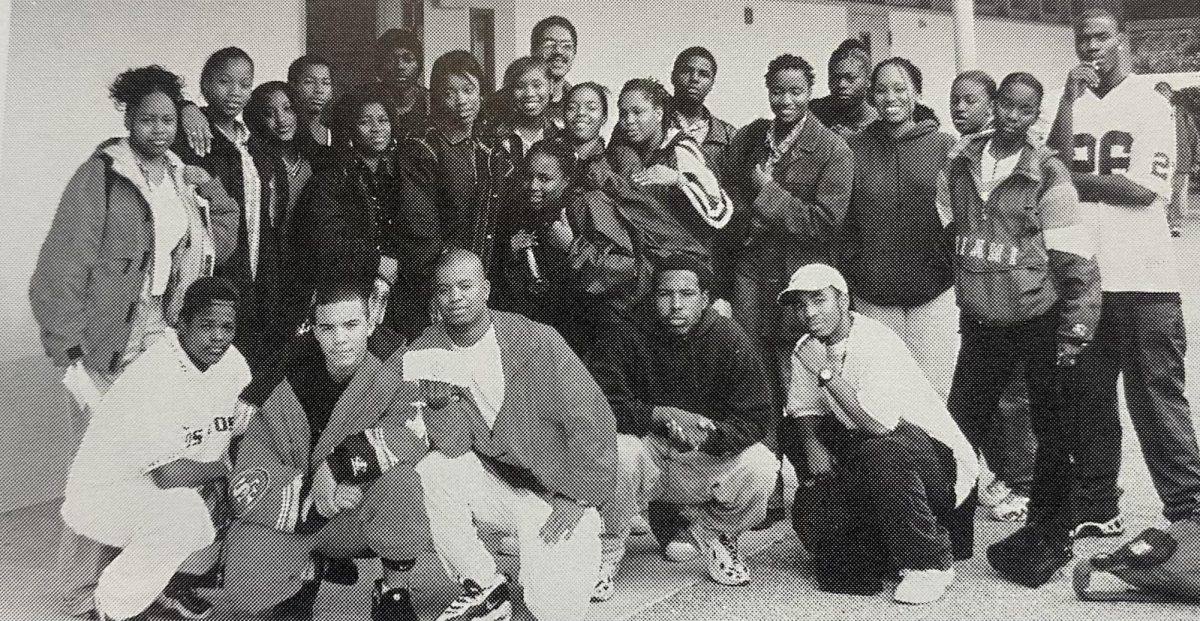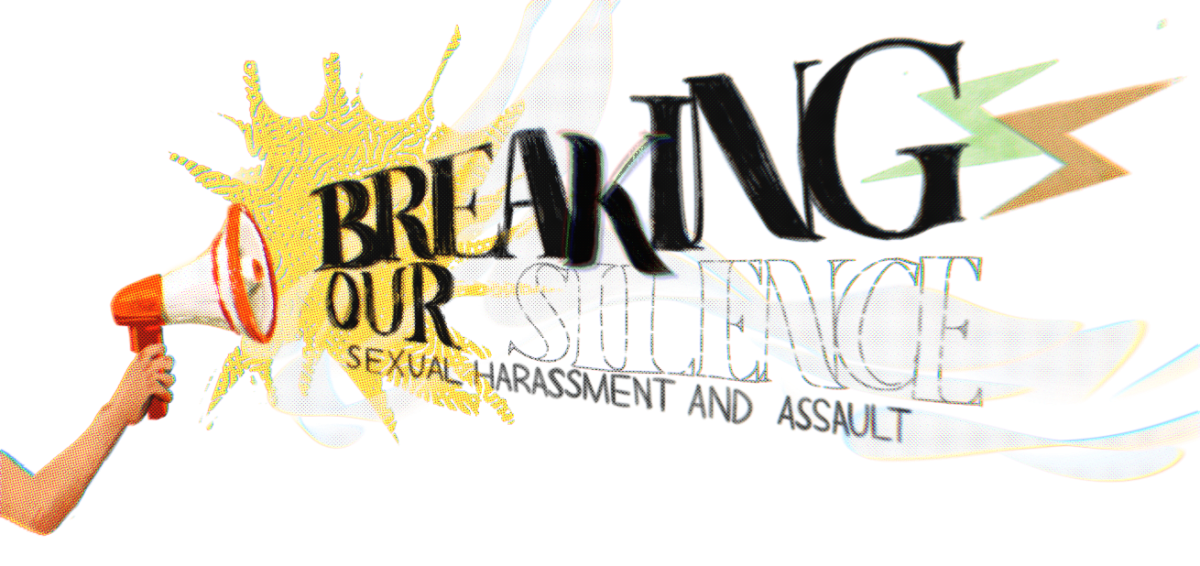Educational Interests
Whether it is the issue of equal pay in the workforce or the presence of women in politics, it is evident that gender stereotypes and discrepancies exist. No, women are no longer fighting for the right to vote or to receive equal education, and America is getting to the point where both men and women can be the breadwinners of the family. However, there are still fields that are grossly dominated by men and other fields dominated by women. Many of these stereotypes can be viewed just by looking at discrepancies in the classes at school.
The AP English courses tend to see a smaller number of guys while the AP Computer Science and accelerated math classes tend to see fewer girls. In fact, this year AP Literature is at a 3 to 1 ratio of girls to boys and AP Computer Science is at a 1 to 5 ratio. Assistant principal Galen Rosenberg said that he has pondered these discrepancies for a while.
“We’re a blue state: we’re very diverse ethnically, culturally, linguistically, socioeconomically … communities like that, stereotypically speaking, have been more progressive to these kind of issues generally,” Rosenberg said. “To me it’s a little surprising that those discrepancies exist here.”
Rosenberg, who majored in Women’s Studies at University of California, Berkeley, has been exploring similar ideas for years. His interest kicked in when he took a class on Southern Literature, which highlighted the cultural, social and political differences throughout literature and society. Rosenberg said that sometimes people question his major, but he believes that he gained a valuable perspective and added insight to the class.
“People always wonder, ‘What’s a guy doing in that course?’” Rosenberg said. “It’s like a white person taking an African-American course. As an outsider in a way, you have a different kind of perspective. Because of that, I feel like I learned more than a woman [would have] and I think it’s good for a program like that to have a different take.”
Rosenberg said that he attributes the disproportionate ratios to many factors. He said sometimes it may just be that women are more interested and skilled at English, while men feel more comfortable with science. But he also said that there is a prominent cultural barrier that at times both unconsciously and consciously plays a deciding factor in the classes students choose.
“In some future world where we understand everything about everything, I wouldn’t be shocked that what we discovered was that whatever inherent differences exist between men and women generally, they show up in things like interest and aptitudes in certain kinds of subject matter,” Rosenberg said. “That doesn’t mean that an individual girl can’t be interested and skillful, [or] that boys generally may be more naturally gifted in and vice versa, but I think when you combine some level of inherent aptitude with cultural norms, it pushes it in either direction or even stronger.”
For example, will a male student choose to join an English class if he knows that he may be one of the only guys in the class? Will a female student choose to join a harder math class if she knows that she may be the only girl in the class? The English department AP classes tend to have more girls compared to boys. However, this statistic paints an incomplete portrait of the gender situation.
“I definitely don’t think it’s true that girls are better at English,” English teacher April Oliver said. “I think that it is true that advanced English classes have more girls in them typically, but, I dont think it is true that girls have more English skills.”
Even so, Oliver doesn’t believe English skills are determined by sex, but rather by talent. Girls may tend to have more of this talent in general, yet there is still strong support for boys to become involved in higher level English courses.
“We try to encourage everybody,” Oliver said. “I don’t think of it in a gender biased way. I definitely think people who want to challenge themselves and improve their writing should do so, but I don’t think of it in a gender way.”
Senior Christopher Tien, who is currently taking AP Literature, wants to become a doctor when he grows up because he sees it as a more practical job than one in an English-related field. However, he believes that sexism does play a role in academic paths for both men and women and that it may be an unconscious decision.
“I do believe this but I have no idea why,” Chris said. “Males are generally more into business, science and technology. This hasn’t influenced my career choice or maybe it has and I don’t even realize it.”
On the opposite side of the spectrum from the Engilsh department is mathematics, a part of academics that can seem male-dominated. Math teacher Carol Evans said that the issue is not that boys are better at math, but that they have been encouraged more than girls to pursue math interests.
“Society basically tells boys that they should be focused on math, and just encourages them a lot more,” Evans said. “Boys are told early on, they should be interested in this, and then encourages their progression.”
Students involved in the Women in Science club at Los Altos have begun to attempt to counteract the belief that women can’t, or shouldn’t, have careers in science. The club was started this year by juniors Katherine Liu and Mary Liu and focuses on providing female students with opportunities in the science field. These opportunities range from being involved in the organization of this year’s STEM week, to gaining internship experience with female professionals.
“Even today, discrimination against women in scientific fields still persists,” Katherine said. “We’ve tried to build a channel through which students can learn more about science and build relationships with professionals.”
The club’s main focus is to give their members the chance to network with professionals and become more involved in the scientific world. Katherine said that the problem often is that young women interested in the field aren’t taking advantage of the options and possibilities available.
“These events and activities [that the club finds] are open to everyone; our role is to bring them to an audience that might otherwise have little contact with these opportunities,” Katherine said.
Next semester the club plans on giving its members more opportunities for internships at scientific institutions.
“In areas like biology, women are really rising to the forefront of their fields. Tech companies are also doing a lot to encourage women to pursue their passion for science,” Katherine said. “We still have work to do, but overall, people are much more open to women in scientific fields than they have ever been in the past.”
Whether it is the issue of equal pay in the workforce or the presence of women in politics, it is evident that gender stereotypes and discrepancies exist. No, women are no longer fighting for the right to vote or to receive equal education, and America is getting to the point where both men and women can be the breadwinners of the family. However, there are still fields that are grossly dominated by men and other fields dominated by women. Many of these stereotypes can be viewed just by looking at discrepancies in the classes at school.
The AP English courses tend to see a smaller number of guys while the AP Computer Science and accelerated math classes tend to see fewer girls. In fact, this year AP Literature is at a 3 to 1 ratio of girls to boys and AP Computer Science is at a 1 to 5 ratio. Assistant principal Galen Rosenberg said that he has pondered these discrepancies for a while.
“We’re a blue state: we’re very diverse ethnically, culturally, linguistically, socioeconomically … communities like that, stereotypically speaking, have been more progressive to these kind of issues generally,” Rosenberg said. “To me it’s a little surprising that those discrepancies exist here.”
Rosenberg, who majored in Women’s Studies at University of California, Berkeley, has been exploring similar ideas for years. His interest kicked in when he took a class on Southern Literature, which highlighted the cultural, social and political differences throughout literature and society. Rosenberg said that sometimes people question his major, but he believes that he gained a valuable perspective and added insight to the class.
“People always wonder, ‘What’s a guy doing in that course?’” Rosenberg said. “It’s like a white person taking an African-American course. As an outsider in a way, you have a different kind of perspective. Because of that, I feel like I learned more than a woman [would have] and I think it’s good for a program like that to have a different take.”
Rosenberg said that he attributes the disproportionate ratios to many factors. He said sometimes it may just be that women are more interested and skilled at English, while men feel more comfortable with science. But he also said that there is a prominent cultural barrier that at times both unconsciously and consciously plays a deciding factor in the classes students choose.
“In some future world where we understand everything about everything, I wouldn’t be shocked that what we discovered was that whatever inherent differences exist between men and women generally, they show up in things like interest and aptitudes in certain kinds of subject matter,” Rosenberg said. “That doesn’t mean that an individual girl can’t be interested and skillful, [or] that boys generally may be more naturally gifted in and vice versa, but I think when you combine some level of inherent aptitude with cultural norms, it pushes it in either direction or even stronger.”
For example, will a male student choose to join an English class if he knows that he may be one of the only guys in the class? Will a female student choose to join a harder math class if she knows that she may be the only girl in the class? The English department AP classes tend to have more girls compared to boys. However, this statistic paints an incomplete portrait of the gender situation.
“I definitely don’t think it’s true that girls are better at English,” English teacher April Oliver said. “I think that it is true that advanced English classes have more girls in them typically, but, I dont think it is true that girls have more English skills.”
Even so, Oliver doesn’t believe English skills are determined by sex, but rather by talent. Girls may tend to have more of this talent in general, yet there is still strong support for boys to become involved in higher level English courses.
“We try to encourage everybody,” Oliver said. “I don’t think of it in a gender biased way. I definitely think people who want to challenge themselves and improve their writing should do so, but I don’t think of it in a gender way.”
Senior Christopher Tien, who is currently taking AP Literature, wants to become a doctor when he grows up because he sees it as a more practical job than one in an English-related field. However, he believes that sexism does play a role in academic paths for both men and women and that it may be an unconscious decision.
“I do believe this but I have no idea why,” Chris said. “Males are generally more into business, science and technology. This hasn’t influenced my career choice or maybe it has and I don’t even realize it.”
On the opposite side of the spectrum from the Engilsh department is mathematics, a part of academics that can seem male-dominated. Math teacher Carol Evans said that the issue is not that boys are better at math, but that they have been encouraged more than girls to pursue math interests.
“Society basically tells boys that they should be focused on math, and just encourages them a lot more,” Evans said. “Boys are told early on, they should be interested in this, and then encourages their progression.”
Students involved in the Women in Science club at Los Altos have begun to attempt to counteract the belief that women can’t, or shouldn’t, have careers in science. The club was started this year by juniors Katherine Liu and Mary Liu and focuses on providing female students with opportunities in the science field. These opportunities range from being involved in the organization of this year’s STEM week, to gaining internship experience with female professionals.
“Even today, discrimination against women in scientific fields still persists,” Katherine said. “We’ve tried to build a channel through which students can learn more about science and build relationships with professionals.”
The club’s main focus is to give their members the chance to network with professionals and become more involved in the scientific world. Katherine said that the problem often is that young women interested in the field aren’t taking advantage of the options and possibilities available.
“These events and activities [that the club finds] are open to everyone; our role is to bring them to an audience that might otherwise have little contact with these opportunities,” Katherine said.
Next semester the club plans on giving its members more opportunities for internships at scientific institutions.
“In areas like biology, women are really rising to the forefront of their fields. Tech companies are also doing a lot to encourage women to pursue their passion for science,” Katherine said. “We still have work to do, but overall, people are much more open to women in scientific fields than they have ever been in the past.”
Sports
Gender roles contribute to unequal treatment and expectations in sports. While these behaviors may be a result of ignorance or cultural stigmas, society is gradually alleviating the negative influence of sexism in sports. However, there is still quite some distance left to go.
Senior Rishi Bhargava started playing field hockey when he was 10. In the past few weeks, Rishi has elevated his game to the highest level, playing for the United States National Junior Field Hockey Team (U21).
“It’s really cool to be able to play for the national team,” Rishi said. “Anytime you are part of a national team, it’s really a great thing to be able to say and be proud of.”
While Rishi is proud of playing on the national field hockey team, he still has to deal with the stereotype that field hockey is a female-orientated sport. In the United States, field hockey is only offered for girls at the high school level, whereas in other countries it is included in the range of men’s sports. While there are other avenues through which men can participate, there is still this lack of inclusion at the high school level.
“I know at least a few guys from each high school that would be willing to play if given the opportunity, so co-ed teams should be an option that schools should look into,” Rishi said.
While the stigma surrounding field hockey may inhibit the formation of co-ed teams, the foundations of these gender associations are much deeper; this experience that Rishi has had in what some perceive to be a female sport is not just a single or rare occurrence, nor it this overall situation unique to one gender. When exploring sports that are not typical to their gender, both men and women can face an unwelcoming environment.
“[Other students] just kind of make fun of me, saying that it’s a girls sport, and that I’m gay for playing it,” Rishi said. “At a time, I was actually not wanting to tell people I play field hockey because I was sort of embarrassed, but now I’ve gotten over that and I’m actually very comfortable, especially because I play for the national team.”
In this case, Rishi has managed to both move past the stereotype surrounding his sport and gain confidence in his athletic abilities. It is also important to have support from other team members and peers to overcome these stigmas in sports.
Freshman Kylie Huch has found these foundations in wrestling, a sport that is typically associated with men due to its high level of physical contact and aggressive nature.
“I really like wrestling because it is more open than other sports, and you can use all the moves you have learned and freely apply them in your game,” Kylie said.
However, she is at a strength disadvantage when it comes to matches. In some cases, such deterrents can contribute to the association of a sport with a specific gender, but group support can help to overcome this.
“I’m not as strong as most the guys in there, so a lot of times when I wrestle guys my weight I have a bit of trouble,” Kylie said. “I am at a disadvantage in terms of strength, but I’m still getting conditioned and everybody is very supportive.”
Maintaining this welcoming environment and encouraging students to pursue their interests, even if they don’t align with gender roles, is one way to erode these gender stereotypes in sports.
“I think we [guys and girls] should be equal in sports,” Kylie said. “I know that in wrestling I can understand it is different because not many girls wrestle, but my team is very supportive and I don’t face any stereotyping from them.”
In the case of both Rishi and Kylie, support from teammates in their respective sports helped them to accomplish so much. While stereotypes in wrestling, field hockey and myriad other sports are present, these individuals and many others have set an example on how to overcome them.
Sexist Jokes
“Girls always tell you to look at things from their point of view. I tried looking out of the kitchen window and I didn’t see anything.” “Men are like computers; they’re hard to figure out and never have enough memory.”
From a Facebook status to an audible remark in a hallway, most people have either seen or heard a sexist remark in some way or another. The concept of sexist jokes is simple: they are jokes that propagate sexist attitudes through the stereotyping of social roles or discrimination based on gender. This brand of humor, unfortunately, is a popular and socially acceptable way to degrade both genders, and it has developed to mainly disparage.
“The often casual basis of sexist remarks and jokes is becoming more and more widespread, particularly among high school students,” sophomore Amelia Baum said.
While these types of remarks have been prevalent throughout history, this phenomenon has become more pertinent in 21st century with increased attention to gender roles. Students need to keep pace with the evolving perspectives on gender issues and the attitudes that sexist jokes portray.
“I think that students usually just disregard the possible consequences of telling sexist jokes,” Amelia said. “Usually nothing happens afterwards, so people feel that it’s okay to tell them.”
The integration of technology may also aid with this proliferation of sexist jokes.
“I think that the spread of these jokes is spurred by the internet,” junior Peter Farmer said. “It is much easier to say things on the internet than in real life because when a person makes a sexist comment, meme, etc., they don’t come into contact with anyone that they’re talking about.”
Principal Wynne Satterwhite said the humorous impact of these jokes do not justify their use.
“I don’t think they’re acceptable at all,” Satterwhite said. “I work very hard to try to make sure that students understand that that’s not something we want to have happening here.”
Although such jokes may be intended to be humorous, they sometimes are riddled with messages about how each gender sees the other.
“I think that a lot of people say things like this because a lot of other people don’t find misogynistic sayings and jokes offensive because they know that they’re intended to to be jokes, not a form of bullying,” Peter said.
With a majority of people claiming that their sexist remarks are simply jokes, more and more people have become accustomed to them. To some, they’ve simply become trivial, solely for the purpose of a laugh. Still, in many instances, sexist jokes are a reiteration of stereotypes and prejudices that each gender have against the other.
“I think that most of these jokes come from the way that women are perceived,” Peter said. “The stereotypes of women as people that make food or things like that are where ideas that women are supposed to make a guy sandwiches come from.”
Males, on the other hand, are often found in roles of power, according to “The Myth of Male Decline,” an article in the New York Times that offers statistics on male and female occupational trends. They are the workers, the breadwinners, the bosses, the ones “in charge.” Consequently, they feel the need to exercise their authority or power.
“Boys have two motivations,” sophomore Meredith Soward said. “They’re either trying to be funny or they feel empowered by putting themselves above girls.”
No matter the circumstances behind them or their intent, the severity of sexist jokes is one that we should recognize as unsuitable for the high school environment.
“9 times out of 10 I intercede [when I hear a sexist joke being told],” Satterwhite said. “I use it as a teaching moment and I talk about the fact that that’s not appropriate, or that that’s not something that we do at Los Altos High School.”







